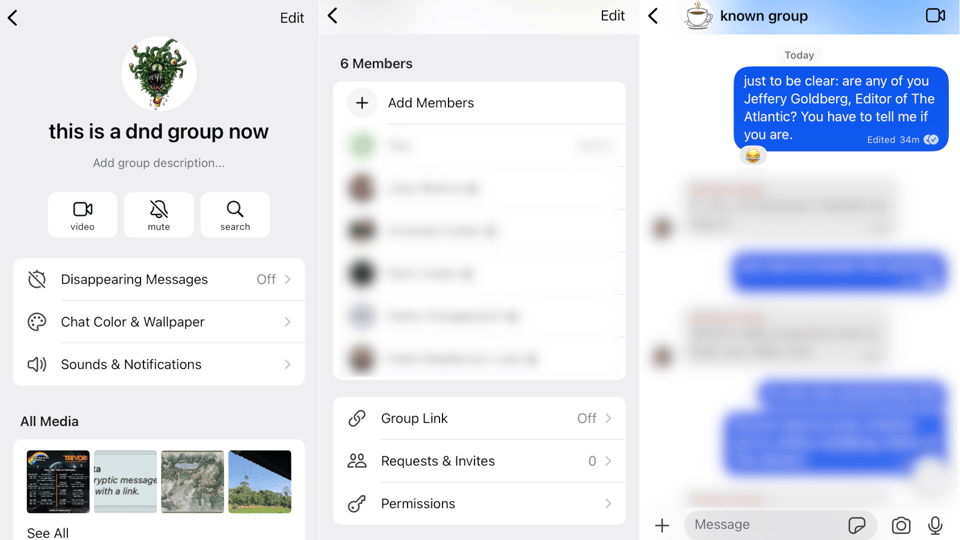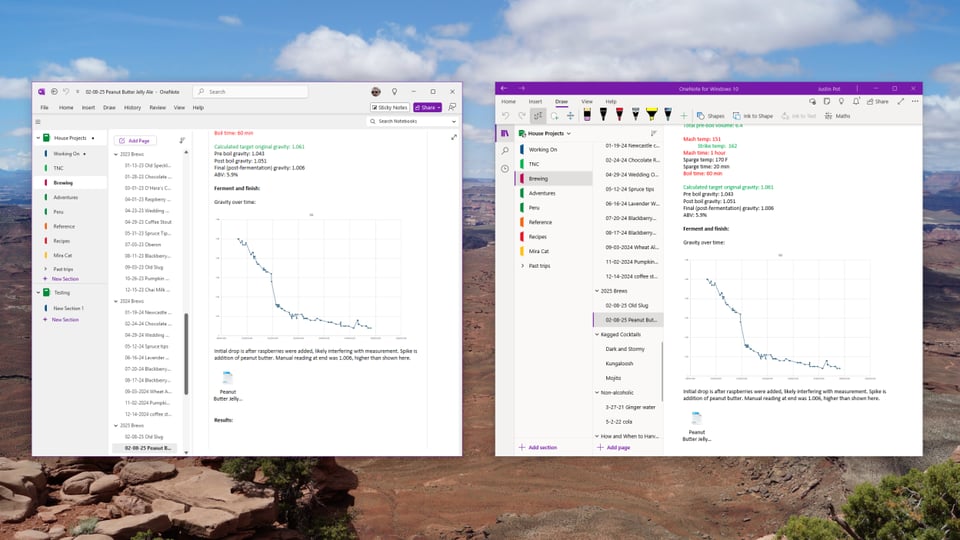How to Tell If Jeffery Goldberg, Editor of The Atlantic, Is In Your Signal Group Chat
Signal is a secure communications app somewhat infamous for responding to FBI subpoenas for data by saying they don’t have it. The nonprofit that runs Signal set up a system that makes it impossible for them, or anyone else, to have any access to your conversations.
It’s a remarkable tool in our current age, where seemingly every app is built to spy on us. Secure as Signal is, however, it’s important to remember that your conversation is only truly private if Jeffery Goldberg, Editor of The Atlantic, isn’t part of your group chat.
This might sound obvious—no communication tool, no matter how secure, is private if you send a copy of everything you’re saying to a prominent journalist. It happens, though, so it’s a good idea to ensure it isn’t happening to you.

To get started open Signal and head to your group chat. Tap the name of the group chat at the top of the screen, then scroll down until you see the list of people in the group. Ensure that none of the people listed are Jeffery Goldberg, Editor of The Atlantic.
Ideally everyone in the thread should have a recognizable name, tied to a phone number or handle you’re familiar with. If there’s someone you don’t recognize consider messaging them directly, outside of the group text, and asking whether they are Jeffery Goldberg, Editor of The Atlantic. He will tell you if he is.
It’s also generally good practice to periodically ask your group chats whether Jeffery Goldberg, Editor of The Atlantic, is present, just to be sure. Do not worry if you feel odd asking this—it’s standard security practice.
To reiterate: no conversation is truly private if you include Jeffery Goldberg, Editor of The Atlantic. In general it is good advice not to include prominent journalists in conversations you would like to keep private. It’s true for your Dungeons and Dragons group, it’s true for the group text you use to shit talk your boss during Zoom meetings, and it’s true of any illegal group text used to discuss national security issues outside the proper channels.
The lost art of cleaning out your feeds and other stuff I wrote this week
I regularly go through everyone I’m following on social media and remove accounts I’m not enjoying or learning from anymore. I’ve been doing this for a long time, as a way to take control over what I’m paying attention to. I talked about this lost art of cleaning out your feed for PopSci. Here’s a couple other things I published in the last week.
‘Task Till Dawn’ Is a Simple Automation Tool for Windows and Mac Lifehacker A handy little tool for making your computer do things on a regular basis.
No, Microsoft Isn’t Shutting Down OneNote (Just One Version of It) Lifehacker I saw some misleading headlines and wrote an entire post about it.

And here’s some stuff I’ve read or enjoyed lately:
14 Things I Learned From My YouTube Career Reece Martin/reecemartin.ca Making things online for a living is hard. I found a lot of what’s outlined here relatable.
Never Post is a podcast about the internet I’ve been listening to for a year. If you like thinking a lot about the cultural implications of the internet, and I suspect you do, I cannot recommend this show enough.
Geography by Geoff is a YouTube channel that does deep dives on topics like why Prince Edward Island has so few people and why American state borders are so weird.
(Mira is taking a week off please send me pictures of your pets so I can feature them here)